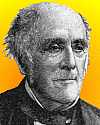
On 5 Jul 1841, Thomas Cook (1808-1892) arranged a special train between Leicester and Loughborough in England for a temperance meeting. It is believed to be the first publicly advertised excursion train in England. From this initiative grew the worldwide travel agency Thomas Cook and Son.
His Obituary in Railway News (1892) gives more details of Cook's life, and the expansion of his business.

On 5 Jul 1996, Dolly a cloned sheep, was born at the Roslin Institute, Edinburgh, Scotland. Today's book pick is: The Second Creation: Dolly and the Age of Biological Control, by Ian Wilmut, Keith Campbell, Colin Tudge. Written by the noted science author Colin Tudge, the book is based on interviews with Ian Wilmut and Keith Campbell, the scientists who cloned Dolly the sheep. They reveal their contribution to genetic engineering and cloning, and the control that science has over the process of life. The book's aim is to explain the story of how and why they came to cloning sheep and the implications for the future, from curing diseases to human cloning.
It is available from Amazon, typically about Used from $6.52. (As of earlier time of writing - subject to change.)
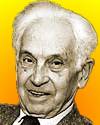 | Biology can be divided into the study of proximate causes, the study of the physiological sciences (broadly conceived), and into the study of ultimate (evolutionary) causes, the subject of natural history. |
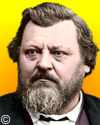 | During this [book preparation] time attacks have not been wanting—we must always be prepared for them. If they grow out of a scientific soil, they cannot but be useful, by laying bare weak points and stimulating to their correction; but if they proceed from that soil, from which the lilies of innocence and the palms of conciliation should spring up, where, however, nothing but the marsh-trefoil of credulity and the poisonous water-hemlock of calumniation grow, they deserve no attention. |
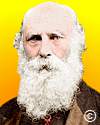 | A theory is a supposition which we hope to be true, a hypothesis is a supposition which we expect to be useful; fictions belong to the realm of art; if made to intrude elsewhere, they become either make-believes or mistakes. |
| Before you look at today's web page, see if you can answer some of these questions about the events that happened on this day. Some of the names are very familiar. Others will likely stump you. Tickle your curiosity with these questions, then check your answers on today's web page. | |
| Births | |
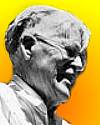 | Andrew Ellicott Douglass, born 5 Jul 1867, was an American astronomer and archaeologist who established the principles of dendrochronology. What is dendrochronology? |
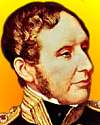 | A British naval officer, hydrographer, and meteorologist was born on 5 Jul 1805, who commanded the voyage of HMS Beagle, aboard which Charles Darwin sailed around the world as the ship’s naturalist. Can you name this naval officer? |
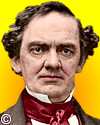 | On 5 Jul 1810, P.T. Barnum was born, an American museum administrator and circus owner who is remembered for his showmanship. Barnum began as proprietor of his American Museum in New York City, which included not just freak shows, but also serious scientific exhibits, for which he actively collected natural history specimens. His initials, P.T., stand for which names? |
| Deaths | |
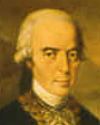 | Antonio de Ulloa (1716-1795) was a Spanish scientist and naval officer who discovered an element. In 1735, the French and Spanish governments sent an scientific expedition to Peru and Ecuador to measure a degree of meridian at Quinto, close to the equator. Ulloa was one of the officers in charge. In 1744, the ship on which he returned was captured by the British. As a prisoner, he was treated respectfully by the English naval officers for they “were not at war with the arts and sciences.” The log of his voyage to Peru published in 1748 contains a description of the new element. Which element did he discover? |
| Events | |
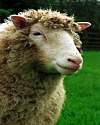 | On 5 Jul 1996, Dolly, a cloned sheep, was born. Scientists had replaced the nucleus of an egg cell with the nucleus from a parent cell—in Dolly’s case, an udder cell. Somehow, the egg cell reprogrammed the donated DNA contained within its new nucleus, and Dolly was the result. In which country was Dolly born? |
Fast answers for the previous newsletter for July 4: Rube Goldberg • the distances of galaxies • five • Megalonyx Jeffersonii, an ice-age ground sloth, a large quadruped vertebrate animal, named Megalonyx for its giant claw; described before he was President • Crab Nebula • Japan • seven months.
 If you enjoy this newsletter, the website, or wish to offer encouragement or ideas, please send feedback by using your mail reader Reply button.
If you enjoy this newsletter, the website, or wish to offer encouragement or ideas, please send feedback by using your mail reader Reply button. Your click on a Facebook, StumbleUpon, or other social button on the site webpages is also a welcome sign of appreciation. Thank you for using them.
© This newsletter is copyright 2020 by todayinsci.com. Please respect the Webmaster's wishes and do not put copies online of the Newsletter — or any Today in Science History webpage. (If you already have done so, please remove them. Thank you.) Offline use in education is encouraged such as a printout on a bulletin board, or projected for classroom viewing. Online, descriptive links to our pages are welcomed, as these will provide a reader with the most recent revisions, additions and/or corrections of a webpage. For any other copyright questions, please contact the Webmaster by using your mail reader Reply button.
--
If you do not want to receive any more newsletters, Unsubscribe
To update your preferences and to unsubscribe visit this link
Executive Real Estate Business Class
-
"It was like a man with wings. It wasn't like anything you'd see on TV or in a monster movie." ...
About the publisher
Search This Blog
Blog Archive
-
▼
2020
(1542)
-
▼
July
(200)
- PHOTOGRAPHY: The danger of documenting sharks
- Meet The Serial Killer Who Ate His Victims Because...
- The Roundup Top Ten from History News Network
- On This Day for July 31 - Lunar Roving Vehicle fir...
- Newsletter for Friday 31 July.
- Lockdowns killing more children than COVID + Docto...
- YOUR WEEKLY ESCAPE: Revisiting an iconic Nat Geo c...
- July 31: The Pilgrim Fathers Depart and the Battle...
- ANIMALS: The dog that got COVID-19
- On This Day for July 30 - Death of Otto von Bismar...
- Newsletter for Thursday 30 July.
- Frontline Docs 2nd Video Press Conf at SCOTUS We h...
- BREAKING NEWS: First U.S. dog to test positive for...
- July 30: First Defenestration of Prague, the 1st O...
- Demystified: Why Do Wolves Howl?
- The Champs Are Back on Forged in Fire Tonight
- SCIENCE: A rush to Mars during a rough patch at home
- Breaking News from History News Network
- On This Day for July 29 - National Aeronautics and...
- Newsletter for Wednesday 29 July.
- All Social Media Censor Frontline Docs COVID Video...
- July 29: Spanish Armada Scattered and Taft's Secre...
- TRAVEL: How to stay safe if you need to travel
- On This Day for July 28 - Beginning of World War I...
- Newsletter for Tuesday 28 July.
- Video Presentation from Washington Summit: America...
- July 28: Robespierre Guillotined, Austria-Hungary ...
- HISTORY: How the vice presidency became critical
- Enjoy Summer with Nat Geo Kids Magazine
- New This Week on History News Network
- On This Day for July 27 - Terrorist attack at Atla...
- Newsletter for Monday 27 July.
- COVID Propaganda & Tyrannical Edicts Affecting Men...
- July 27: Walter Raleigh Brings Tobacco, the Atlant...
- FAMILY: Can you transfer your ‘retro fun’ to your...
- The 10 greatest discoveries made by the British pu...
- On This Day for July 26 - Suez Canal seized, John ...
- Newsletter for Sunday 26 July.
- CDC says actual # of cases is up to 13X higher tha...
- July 26: 1st Muslim Civil War, Pizarro's Royal Cha...
- The Compass: Greece
- On This Day for July 25 - American advance into Ca...
- Newsletter for Saturday 25 July.
- VIRUS UPDATE: What does COVID-19 do to a child's b...
- July 25: The 1st Steam Locomotive, Mussolini Dismi...
- PHOTOGRAPHY: The photo that shocked a nation
- This Hardened Blob Of Nuclear Waste Could Kill You...
- On This Day for July 24 - Beginning of Mata Hari's...
- The Roundup Top Ten From History News Network
- Newsletter for Friday 24 July.
- Medical Journal: make the vaccine Mandatory! + Fre...
- YOUR WEEKLY ESCAPE: The man who claims to be Jesus...
- July 24: Cartier Lands in Canada, Mary Queen of Sc...
- ANIMALS: Let’s not forget this other catastrophe
- Demystified: Are Dogs Really Color-Blind?
- On This Day for July 23 - Egyptian monarchy topple...
- Newsletter for Thursday 23 July.
- listen to Dixie Brogdon Hopson tells how the hospi...
- July 23: Upper and Lower Canada United and the Bre...
- SCIENCE: The joy of vintage comforts
- A Puzzling Challenge on Forged in Fire Tonight
- Explore King Tut's tomb with National Geographic H...
- Breaking News from History News Network
- On This Day for July 22 - Deng Xiaoping reinstated...
- CDC Knows Masks and other methods don't work to st...
- Newsletter for Wednesday 22 July.
- July 22: First Congress of Vienna and Spoonerism
- TRAVEL: When tourism returns will it be better?
- Enjoy Summer with Nat Geo Kids Magazine
- On This Day for July 21 - Egyptians defeated in th...
- Newsletter for Tuesday 21 July.
- July 21: 1st Battle of Bull Run, the Trans-Siberia...
- HISTORY: John Lewis always stood for the same thing
- New This Week on History News Network
- On This Day for July 20 - First Moon landing, Sir ...
- Newsletter for Monday 20 July.
- What Scientific Study Shows 6 feet distance or "ma...
- July 20: On This Day in History
- FAMILY: Searching for patience
- Anne of Cleves: Henry VIII's most successful queen?
- On This Day for July 19 - U.S. women's suffrage mo...
- Newsletter for Sunday 19 July.
- Mask Truth Part 2, Data by Nations shows Hydroxych...
- July 19: 1st US Women's Rights Convention and V fo...
- The Compass: Colombia
- On This Day for July 18 - Publication of Mein Kamp...
- Newsletter for Saturday 18 July.
- Enough! Mask Truth, re-Creating you! the intended...
- CORONAVIRUS SPECIAL EDITION: What type of person d...
- July 18: Spanish Civil War Begins and 7 Years of K...
- PHOTOGRAPHY: Showing a nation losing its drinking ...
- How Julia Child Went From World War 2 Spy To Belov...
- Introducing Expedition: Learn! A New Way to Help K...
- The Roundup Top Ten for July 17, 2020
- On This Day for July 17 - Beginning of the Spanish...
- Newsletter for Friday 17 July.
- July 17: Execution of the Romanovs and a Stormy Bi...
- YOUR WEEKLY ESCAPE: An intimate look inside a mode...
- ANIMALS: The trouble with 'retired' chimps
- Man vs. 800-Pound Beast! Watch New Episode of Alon...
-
▼
July
(200)
-
Blogroll
-
About
HistoryFact










0 comments:
Post a Comment